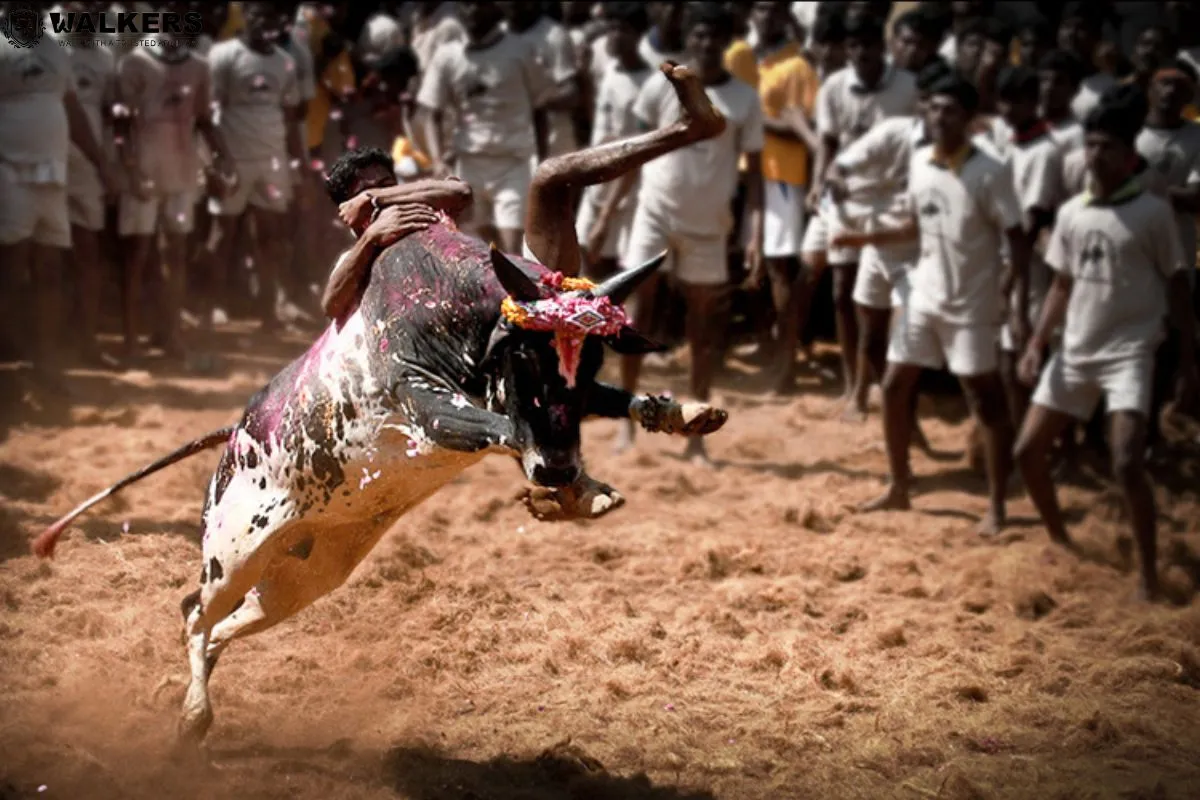


In a recent verdict, a Constitution Bench of the Supreme Court upheld the validity of amendments made by Tamil Nadu to the Prevention of Cruelty to Animals Act (PCA Act), thereby permitting the traditional bovine sport Jallikattu. Justices KM Joseph, Ajay Rastogi, Aniruddha Bose, Hrishikesh Roy, and CT Ravikumar stated that the amendments were introduced to reduce the pain and suffering of bovines while allowing the sport to continue.
The judgment emphasized that there was no flaw in the state's action, asserting that Jallikattu is a bovine sport and participation would be allowed as per the rules. The Court stated that the amended act is not related to Article 48 of the Indian Constitution, which deals with the protection and improvement of livestock. It further highlighted that although certain types of bulls used in Jallikattu may have an incidental impact on agricultural activity, the primary purpose of the amendment is connected to Entry 17, List III of the Seventh Schedule to the Constitution, which deals with the concurrent legislative powers of the central and state governments.
Additionally, the Court upheld the laws allowing other traditional sports, namely Kambala and bull cart racing, in Karnataka and Maharashtra, respectively. It held that these laws do not infringe upon Articles 14 (right to equality) and 21 (right to life and personal liberty) of the Constitution of India, as they do not violate the fundamental duties outlined in Articles 51A(g) and 51A(h).
The Supreme Court's previous judgment in May 2014 had declared Jallikattu, as practiced at the time, to be violative of the rights of the animals involved and the Prevention of Cruelty (PCA) Act. The court had then held that Jallikattu had never been a part of the culture or tradition of Tamil Nadu. Consequently, the Tamil Nadu Jallikattu Regulation Act of 2009, which regulated the practice, was struck down.
However, in January 2016, the Central government issued a notification exempting Jallikattu and bullock cart races from the purview of the PCA Act. This notification was later challenged in the Supreme Court. Subsequently, the Tamil Nadu government enacted the Prevention of Cruelty to Animals (Tamil Nadu Amendment) Act of 2017, which paved the way for the resumption of bull-taming sports like Jallikattu.
The questions of law considered by the apex court included the constitutionality of the Tamil Nadu Amendment Act, its relation to cultural heritage and the well-being of native bull breeds, its compliance with Articles 14 and 21, and its compatibility with the previous judgments on the matter.
The petitioners' counsel argued that Jallikattu amounted to a bloodsport in which bulls were forced to participate without their consent. They contended that permitting cruelty to animals in specific sports violated the right to equality under Article 14, and cultural rights could not exempt such practices from the test of reasonableness. The petitioners also questioned the President's assent to the legislation and argued that ill-treatment of animals undermined the right to dignity.
On the other side, the Solicitor General of India (SGI) and the advocates representing the state of Maharashtra supported the validity of the amendments.
Overall, the Supreme Court's Constitution Bench upheld the amendments made by Tamil Nadu, allowing Jallikattu to be practiced while emphasizing the importance of minimizing cruelty towards animals participating in the sport.
TAGS: Supreme Court Constitution Bench Tamil Nadu Prevention of Cruelty to Animals Act PCA Act Jallikattu bovine sport validity amendments cultural heritage bull-taming sports Kambala bull cart racing animal rights cruelty to animals Article 48 List III Seventh Schedule Entry 17 Articles 51A(g) and 51A(h) Articles 14 and 21 bloodsport consent right to equality cultural rights reasonableness President's assent right to dignity Solicitor General of India Maharashtra.